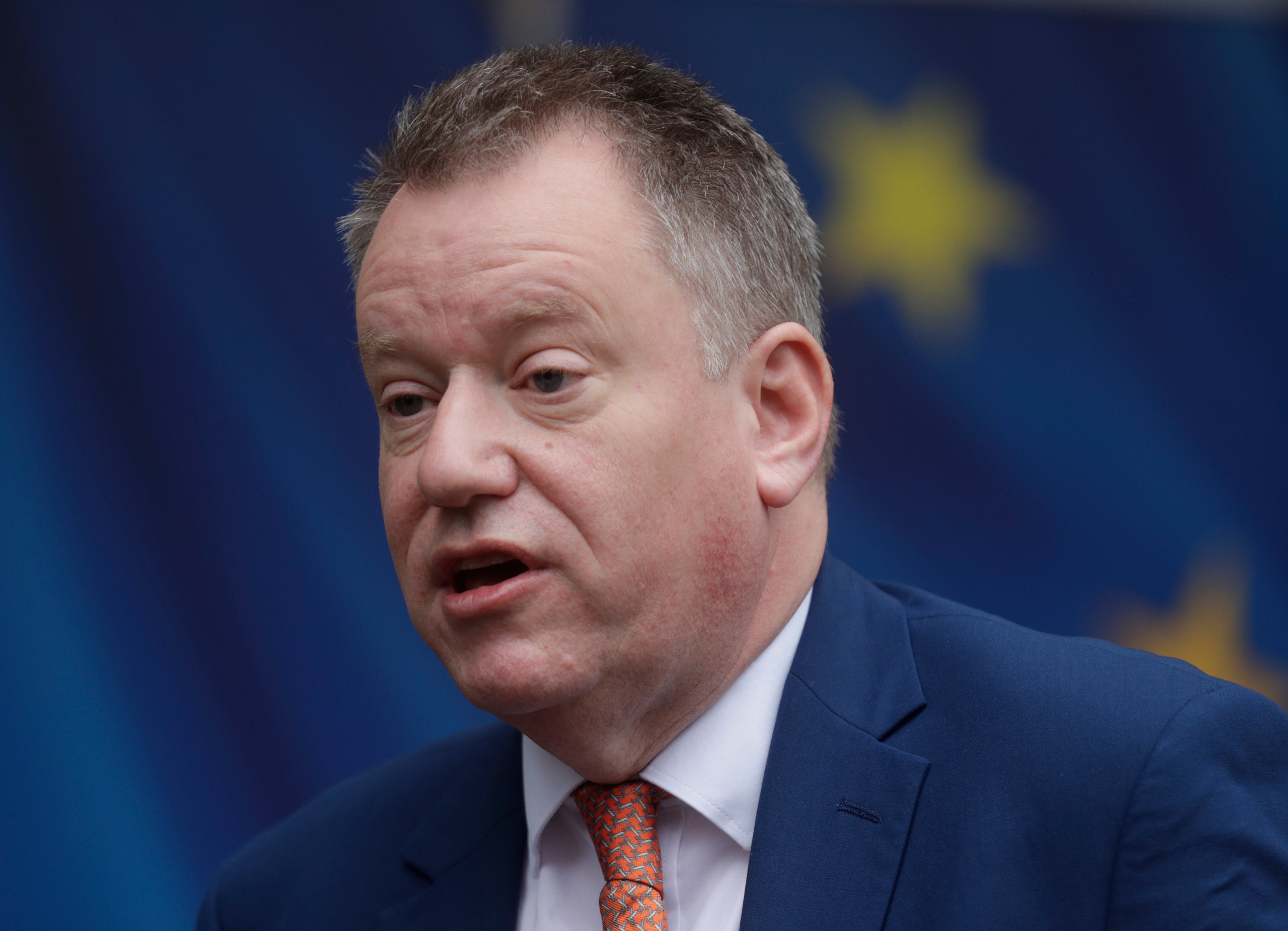Lord Frost has identified a fundamental problem with Brexit
The Brexit minister wants Britain to be a low-tax offshore trading centre, but Leave voters want EU levels of high public spending, writes John Rentoul

David Frost, the Brexit minister, said in a speech yesterday that the whole point of leaving the EU was for Britain to do things differently. That was why, he said, he negotiated what is often called a “hard” Brexit, because he and Boris Johnson wanted to give Britain the maximum freedom to diverge from EU rules. He argued that Britain will only make a success of Brexit if it goes for a low-tax economy that focuses on deregulation and innovation.
There is just one problem with this vision of a chaotic, creative free-trade entrepot off the coast of the ossified European empire: it is not what most Leavers voted for. Talking about the motives of the 17m people who voted to Leave involves some sweeping generalisations, but to generalise sweepingly, most of them were voting for more spending on the NHS and a continental-style welfare state.
“If after Brexit all we do is import the European social model we will not succeed,” Lord Frost told his audience, the Margaret Thatcher conference on Trade, organised by the think tank founded to promote her free-market beliefs, the Centre for Policy Studies. “We have not successfully rolled back the frontiers of the European Union from Britain with Brexit, only to import that European model after all this time.”
His audience will have spotted the reference to Thatcher’s Bruges speech in 1988, a significant moment in the Eurosceptic turn in the Conservative party: “We have not successfully rolled back the frontiers of the state in Britain, only to see them re-imposed at a European level with a European super-state exercising a new dominance from Brussels.”
Lord Frost argued that “the formula for success as a country is well known”. Top of his list was “low taxes – I agree with the chancellor: as he said in his Budget speech, our goal must be to reduce taxes”. This is manna for the small-state Tory press. The front-page lead headline in this morning’s Daily Telegraph is: “Cut taxes or Brexit will fail, says Frost.”
But it is also thoroughly confusing if not confused. What the chancellor said in his Budget speech was rather different from what the chancellor – and the prime minister – actually did in the real Budget a month earlier, which was to put up taxes to pay for the NHS. And not just for the NHS but for a “permanent new role for the government”, as Rishi Sunak put it, namely more funding for social care.
Thus Lord Frost waded into the civil war raging behind the scenes in the Conservative Party, with Liz Truss, the foreign secretary, putting herself at the head of the low-tax faction unhappy about the new health and social care levy. But he was also pointing up a war raging among the prime minister’s own multiple personalities.
Johnson wants to level up those parts of the country left behind by the economic success of London and the south-east, built on EU membership and free movement of workers. But this involves an active, interventionist government led by a “Brexity Hezza” – as interventionist as Michael Heseltine but with a different attitude to the EU. That is why Johnson’s 2019 manifesto proposed huge additional spending on the NHS, schools and the police. It was essentially a Eurosceptic New Labour programme, and the parallel with the Blair and Brown governments was made explicit by the rise in national insurance contributions to pay for it, which is what Labour did in 2002.
This is quite different from the “formula for success” that Lord Frost set out last night. Apart from low taxes, he advocated “light-touch and proportionate regulation”, “free trade”, “competition” and “personal freedom and responsibility”. These may sound like mere Thatcherite slogans, but they point in the opposite direction to the tax rises and high spending on public services that are the government’s actual policies.
To keep up to speed with all the latest opinions and comment sign up to our free weekly Voices newsletter by clicking here
Lord Frost sounded like the leader of the internal Thatcherite opposition when he said: “We need to reform fast, and those reforms are going to involve doing things differently from the EU.” Some Leavers will agree with that, but think it means using pounds and ounces, whereas what he means is a small-state economic model that would seek out relative economic advantage over the EU and pursue it ruthlessly. “That is why I talk so often about divergence,” he said, “not for the sake of it, but because it is a national necessity.”
That is not what most Leave voters think, and it is certainly not what Remainers want. The reason Johnson and Sunak have put up taxes is that it is what the overwhelming majority of the country wants. Everyone would like lower taxes in theory, but in practice, with NHS waiting lists now numbering one in 10 of the entire population, we want big government to look after us and we are prepared (reluctantly of course) to pay for it.
What we want is European social democracy with a union jack on it. Lord Frost thinks this is a form of Brexit that “will not succeed”. The co-architect of Boris Johnson’s Brexit seems to be saying Brexit as currently pursued isn’t worth it. Who could have foreseen that?
Subscribe to Independent Premium to bookmark this article
Want to bookmark your favourite articles and stories to read or reference later? Start your Independent Premium subscription today.

Join our commenting forum
Join thought-provoking conversations, follow other Independent readers and see their replies